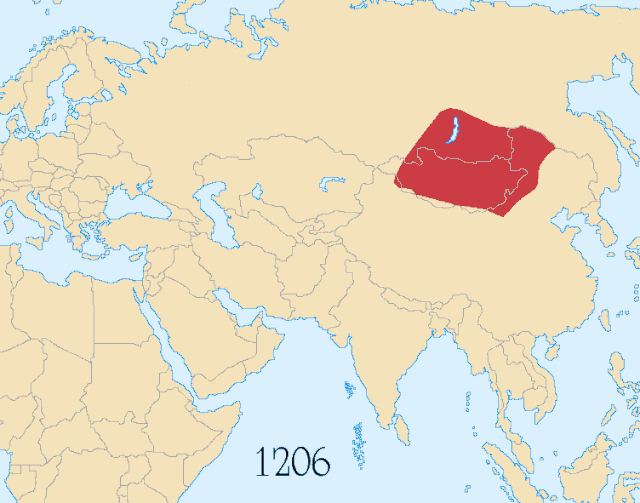Content deleted Content added
Tags: Mobile edit Mobile web edit Advanced mobile edit |
|||
Line 385: * Western researcher [[R. J. Rummel]] estimated that 30 million people were killed by the Mongol Empire. Other researchers estimate that as many as 80 million people were killed, with 50 million deaths being the middle ground. The population of China fell by half during fifty years of Mongol rule. Before the Mongol invasion, the territories of the Chinese dynasties reportedly had approximately 120 million inhabitants; after the conquest was completed in 1279, the 1300 census reported that China's total population was roughly 60 million. While it is tempting to attribute this major decline in China's population solely to Mongol ferocity, today scholars have mixed opinions about this subject. Scholars such as Frederick W. Mote argue that the wide drop in numbers reflects an administrative failure to keep records rather than a ''de facto'' decrease, while others such as Timothy Brook argue that the Mongols reduced much of the south Chinese population, and very debatably the Han Chinese population, to an invisible status through cancellation of the right to passports and denial of the right to direct land ownership. This meant that the Chinese had to depend on and be cared for chiefly by Mongols and Tartars, which also involved recruitment into the Mongol army. Other historians such as William McNeill and [[David O. Morgan]] argue that the [[bubonic plague]] was the main factor behind China's demographic decline during this period.{{Citation needed|date=February 2012}} * The [[Muslim world|Islamic world]] was subjected to massive changes as a result of the Mongol invasions. The population of the Iranian plateau suffered from widespread disease and famine, resulting in the death of up to three-quarters of its population, possibly 10 to 15 million people. Historian Steven Ward estimates that Iran's population did not reach its pre-Mongol levels again until the mid-20th century.<ref name="Steve Ward">{{cite book |last=R. Ward |first=Steven |title=Immortal: A Military History of Iran and Its Armed Forces |url=https://books.google.com/books?id=8eUTLaaVOOQC&pg=PA39 |publisher=[[Georgetown University Press]] |year=2009 |page=39 |isbn=978-1-58901-258-5 |access-date=13 October 2015 |archive-url=https://web.archive.org/web/20151015234934/https://books.google.com/books?id=8eUTLaaVOOQC&pg=PA39 |archive-date=15 October 2015 |url-status=live |via=[[Google Books]]}}</ref> * Mesopotamia, for millennia a showplace and pinnacle of human civilization and achievement, was depopulated and pastoralized, never to resume its previous pre-eminence. In his ''[[The Outline of History|Outline of History]]'', [[H. G. Wells]] attributed this to a Mongol prejudice against urban life: <blockquote>[I]n this region [Mesopotamia] nomadism really did attempt, and really did to a very considerable degree succeed in its attempt, to stamp a settled civilized system out of existence. When Jengis Khan first invaded China, we are told that there was a serious discussion among the Mongol chiefs whether all the towns and settled populations should not be destroyed. To these simple practitioners of the open-air life the settled populations seemed corrupt, crowded, vicious, effeminate, dangerous, and incomprehensible; a detestable human efflorescence upon what would otherwise have been good pasture. They had no use whatever for the towns. **** But it was only under Hulagu in Mesopotamia that these ideas seem to have been embodied in a deliberate policy. The Mongols here did not only burn and massacre; they destroyed the irrigation system that had endured for at least eight thousand years, and with that the mother civilization of all the Western world came to an end.<ref name=Wells>{{Cite web |url=http://archive.org/details/hgwellsoutlinehistoryvol2 |title=The Outline of History, Being a Plain History of Life and Mankind |volume=Two |first=H. G. |last=Wells |author-link=H. G. Wells |via=[[Internet Archive]]}}</ref></blockquote> | |||
 Article Images
Article Images